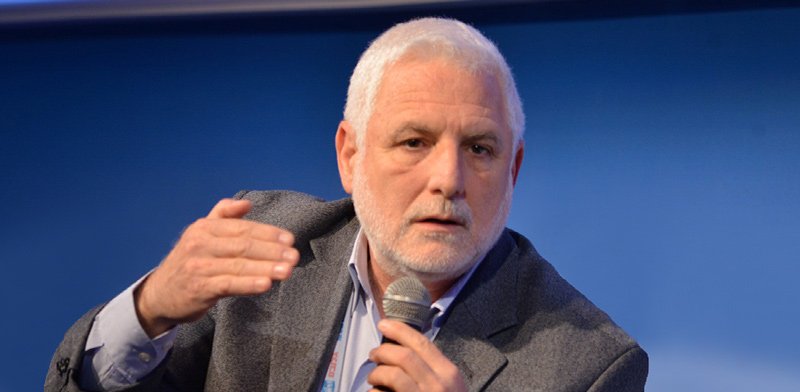Israel Railways chairman departs in electrification dispute

Israel Railways wants to continue its agreement with the Spanish company responsible for the railway electrification project, which clashes with the recommendation by outgoing chairman Maj. Gen. (res.) Dan Harel. Harel notified the Ministry of Finance and the Minister of Transport on February 4 of his desire to resign as chairman after two years in the job, effective immediately. Sources inform "Globes" that Harel's dramatic announcement was preceded by a decisive discussion of the future of the NIS 12 billion railway electrification project. Israel Railways has been severely criticized for a two-year delay in the completion of electrification of the route between Tel Aviv and Jerusalem. Furthermore, work on electrification of Israel Railways' other main routes has yet to begin. According to the original timetable, this work was scheduled for completion next year.
Sources in the sector believe that Harel's resignation is directly linked to the professional dispute between him and Israel Railways CEO Michael Maixner on the future of the project, which is of crucial important to Israel Railways. The sources add that Harel presented a plan in the discussion in which Israel Railways would terminate its agreement with SEMI when work on electrification of the high-speed route to Jerusalem was completed. Under this plan, further electrification work will be split among the bidders in the original tender won by SEMI: Alstom, Siemens, and Elecnor.
Maixner and Israel Railways' professionals staff, on the other hand, recommended leaving SEMI in charge of the project, first of all because the company's performance has improved recently, leading to greater satisfaction with the company by Israel Railways, and secondly because the alternative proposed by Harel involves prolonged delays in the project's timetable and considerable additional cost. Harel warned that leaving the entire project in the hands of SEMI would be putting all of the eggs in one basket.
The Ministry of Finance and the Ministry of Transport, however, did not support Harel's view. The Ministry of Finance budget department, Accountant General department, and Government Companies Authority said in the discussion that they were inclined to support a compromise proposal in which SEMI would complete electrification of tracks according to the original tender, while signing a new improved agreement with the state. At the same time, Israel Railways will start the process of a new tender for electrification of an additional 150-200 kilometers of track. Under this proposal, after another franchise holder is selected and begins work, the state will have the option of transferring to it parts of SEMI's electrification project, which will reduce SEMI's bargaining power vis-à-vis the state.
Israel Railways exposed to severe damage
Israel Railways has already ordered electric locomotives from Bombardier and 330 electric railway carriages from Siemens for a total of NIS 4 billion. The delays in conversion of infrastructure expose Israel Railways to severe damage stemming from an inability to use the electric rolling stock and a shortage of diesel-powered carriages and locomotives for supplying the growing demand for travel during the transition period before the electrification project is completed. Among other things, Israel Railways had to place unplanned orders for dozens of additional hybrid carriages and locomotives capable of operating on either electricity or diesel, costing hundreds of millions of shekels.
Israel Railways said in response, "Israel Railways is acting with determination and professionalism to complete the electrification project, with all of its various challenges. Israeli Railways does not discuss its agreements in the media." No response was available from Harel.
